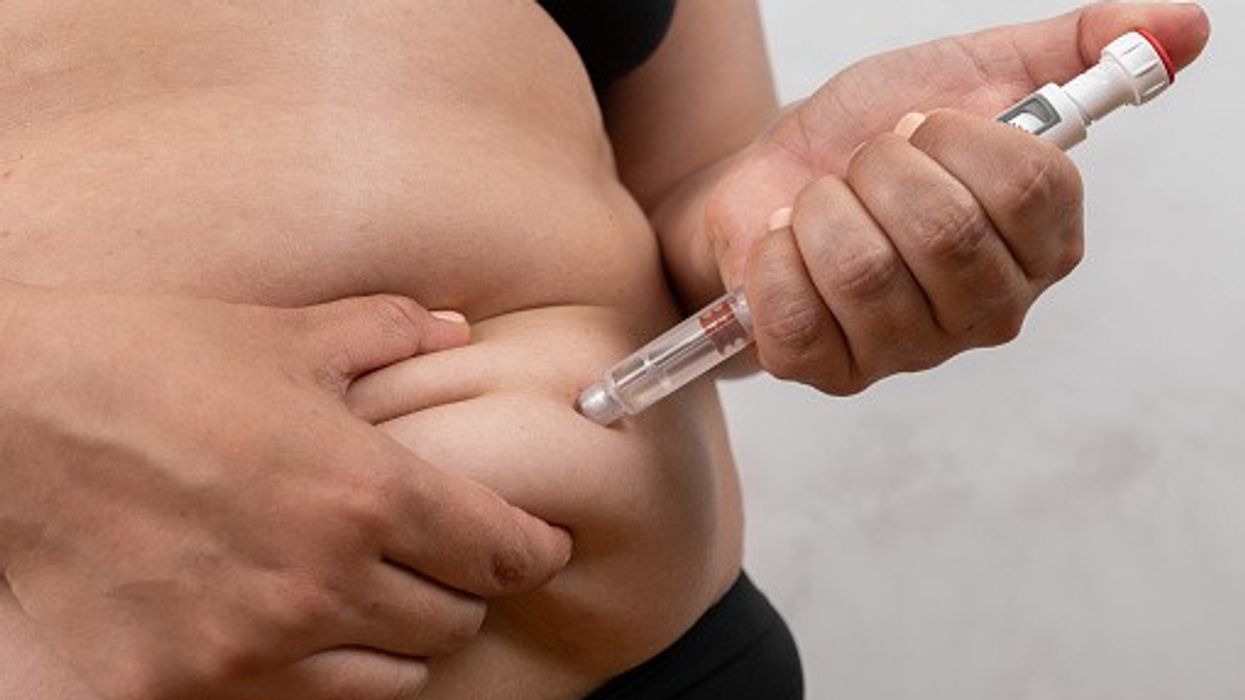She warned that the tirzepatide rollout could lead to an additional 1,000,000 GP appointments, with a quarter of a million people expected to receive the weight loss drug in the first phase
Professor Kamila Hawthorne, chair of the Royal College of GPs, has cautioned that while weight loss drugs hold significant potential to enhance many patients' lives, they are not without risks.
She also expressed concern that expanding the roll out of tirzepatide at the scale proposed by the National Institute for Health and Care Excellence (NICE) would have “significant practical and resource implications for the NHS and primary care.”
The final draft guidance from NICE, published on 5 December, suggests that around 220,000 people living with obesity will be offered the weekly injection, along with a reduced-calorie diet and increased physical activity, over the next three years.
Marketed under the brand name Mounjaro by Eli Lilly, tirzepatide is recommended for people with a body mass index (BMI) of more than 35 and at least one weight-related illness.
Accepting the request from NHS England to roll out the medication over 12 years, the NICE guidance proposes to prioritise those with the highest clinical need.
This includes people who are already receiving care in specialist weight management services and they will be able to access tirzepatide within 90 days of NICE's final guidance being published, if clinically eligible.
NHS England will develop a plan detailing which other groups of patients will be offered tirzepatide in the next three years.
Professor Jonathan Benger, NICE’s chief medical officer said: “The world will look very different in three years which is why we’ve taken the unprecedented decision to review the way this medicine is delivered to patients then.
“Tirzepatide and other drugs like it, such as semaglutide, will help people living with obesity to lose weight, and as a result will reduce their risk of developing heart disease or having a stroke.”
Weight loss drugs do not come without risk
Professor Hawthorne acknowledged that these weight loss drugs have shown benefits for certain patients and offer a lot of potential to improve the lives of many, particularly those with health conditions linked to their weight.
However, she cautioned that these medications should not be seen as a “silver bullet for weight loss” as they come with risks and there is “no one-size fits all approach to tackling obesity.”
She emphasised the importance of placing as much, if not more, focus on prevention and stopping people from becoming overweight, rather than relying solely on medical interventions.
Professor Hawthorne also noted that expanding the number of patients eligible for weight loss jabs should not be seen as an alternative to properly resourcing other services designed to help patients lose weight, such as those that support lifestyle changes, weight loss clinics, and bariatric surgery.
“Different patients will respond to different interventions, so these services need to work alongside each other.
“We also don’t know how long tirzepatide should be taken for, as it appears that when it is stopped, weight gain can recur,” she said.
Professor Hawthorne added that, as more patients become eligible for tirzepatide, serious consideration must be given to the impact this will have on general practice.
“If 220,000 patients are going to receive this treatment, even over a period of three years, that could be up to an additional 1,000,000 GP appointments.
“It’s vital that general practice is resourced appropriately, and that GPs have the necessary training to safely take on any additional responsibility that comes their way,” she noted.
Professor Hawthorne urged people not to acquire and take weight loss medication without a prescription and from dubious sources online, warning that this can be “incredibly dangerous.”
Tirzepatide: Benefits and costs
Clinical trials have shown tirzepatide to be more effective than diet and exercise alone and compared to semaglutide with diet and exercise, with patients losing an average of 21 per cent of their body weight in 36 weeks.
Kwik Pens are £122 each at the highest 15mg dose, with each pen containing 4 doses, providing a 4-week supply.
It is estimated that the medicine and associated wraparound care services will cost NHS England around £317.2m per year by the third year of implementation.
Despite the significant cost, evidence suggests that the treatment is cost-effective for some patients, as weight loss in those with obesity-related illnesses reduces the risk of further health complications, ultimately saving the NHS money.
Despite the considerable cost, evidence suggests the treatment is cost-effective for some patients, as weight loss in those with obesity-related illnesses reduces the risk of further health complications, ultimately saving the NHS money.
Dr Kath McCullough, NHS England’s national specialty advisor for obesity, stated that weight loss drugs are an important tool in helping people lose weight while also reducing the risk of other serious long-term conditions such as diabetes, strokes and heart attacks.
However, she warned that these drugs, on their own, are not a magic bullet and they need to be prescribed by a healthcare professional alongside programmes that help people lose weight and live healthier lives by making changes to their diet and physical activity.













